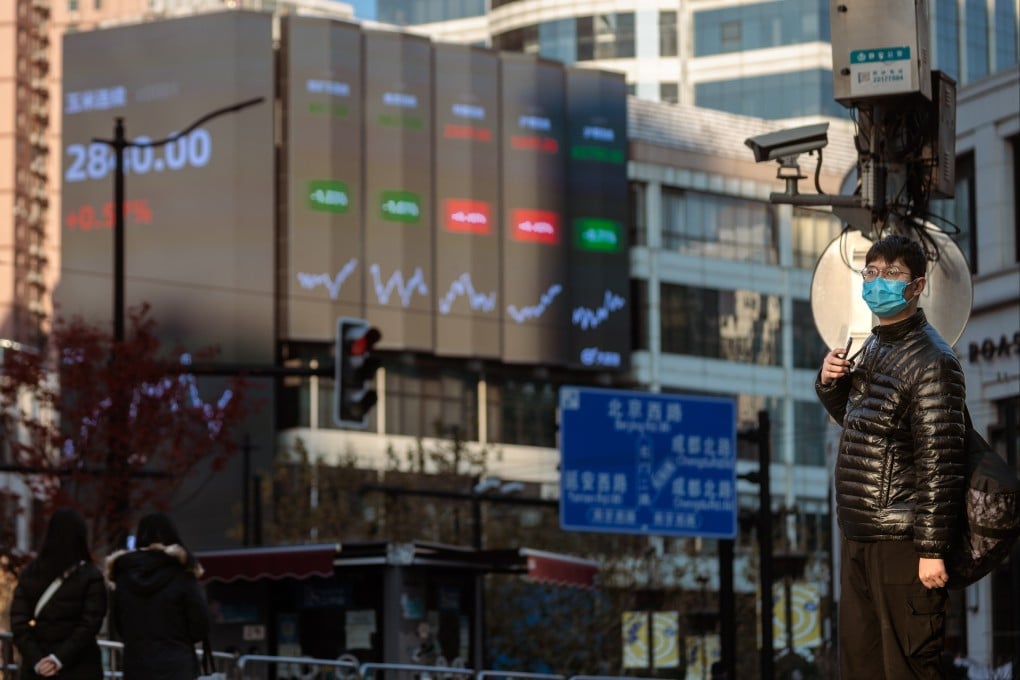Advertisement
Overseas investors pile into Chinese stock market, buying record amount of shares in January
- Offshore funds have added a net US$19.4 billion of stocks listed in Shanghai and Shenzhen this month, almost 50 per cent above the previous record
- The fervour has helped drive the CSI 300 Index, a benchmark for mainland stocks, to the brink of a bull market
Reading Time:2 minutes
Why you can trust SCMP
2

Foreigners are returning to China’s stock market with a vengeance, snapping up more shares in January alone than they did in the whole of 2022.
Offshore funds have added a net 131.1 billion yuan (US$19.4 billion) worth of stocks listed in Shanghai and Shenzhen through trading links with Hong Kong this month, even with a week-long holiday trading break. That is almost 50 per cent above the previous monthly record, according to Bloomberg-compiled data going back to 2017.
The fervour has helped drive the CSI 300 Index, a benchmark for mainland stocks, to the brink of a bull market as traders returned from the Lunar New Year holiday this week. Analysts expect foreign buying to propel an outperformance in mainland shares in the coming months, a catch-up to the massive rally seen in overseas Chinese stocks since the start of November.
Advertisement
Solid holiday spending data will “continue to be a theme offering a shot in the arm throughout the first quarter and enhance investor confidence toward a recovery,” Kaiyuan Securities analyst Zhang Chi wrote in a note.
The CSI 300 Index has gained nearly 20 per cent over the past three months through Monday as sentiment improved following Beijing’s Covid policy pivot and moves to support growth. While a world-beating feat by itself, the gains have still trailed the 52 per cent surge in the Hang Seng China Enterprises Index, which tracks Chinese firms traded in Hong Kong.
The months-long rally has led to some investors booking in gains – as illustrated on Monday when the CSI 300 pulled back from the verge of a bull market.
Advertisement
Select Voice
Choose your listening speed
Get through articles 2x faster
1.25x
250 WPM
Slow
Average
Fast
1.25x
